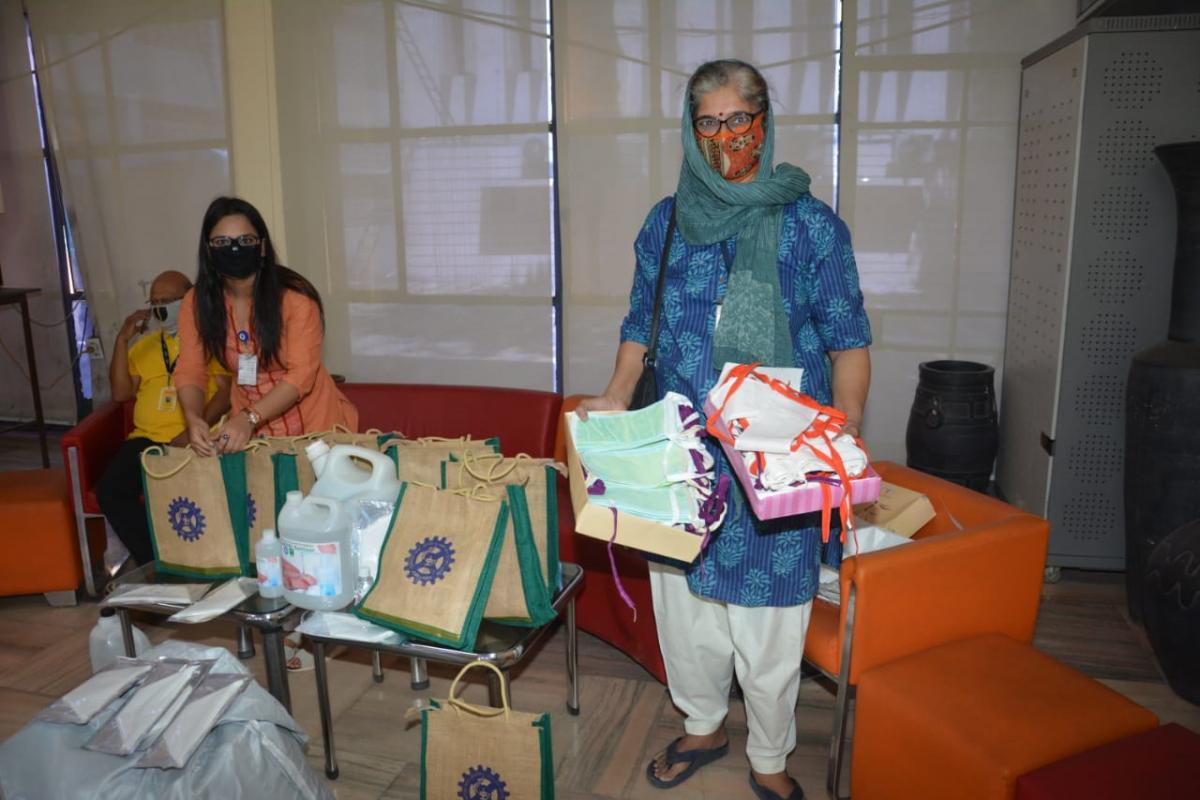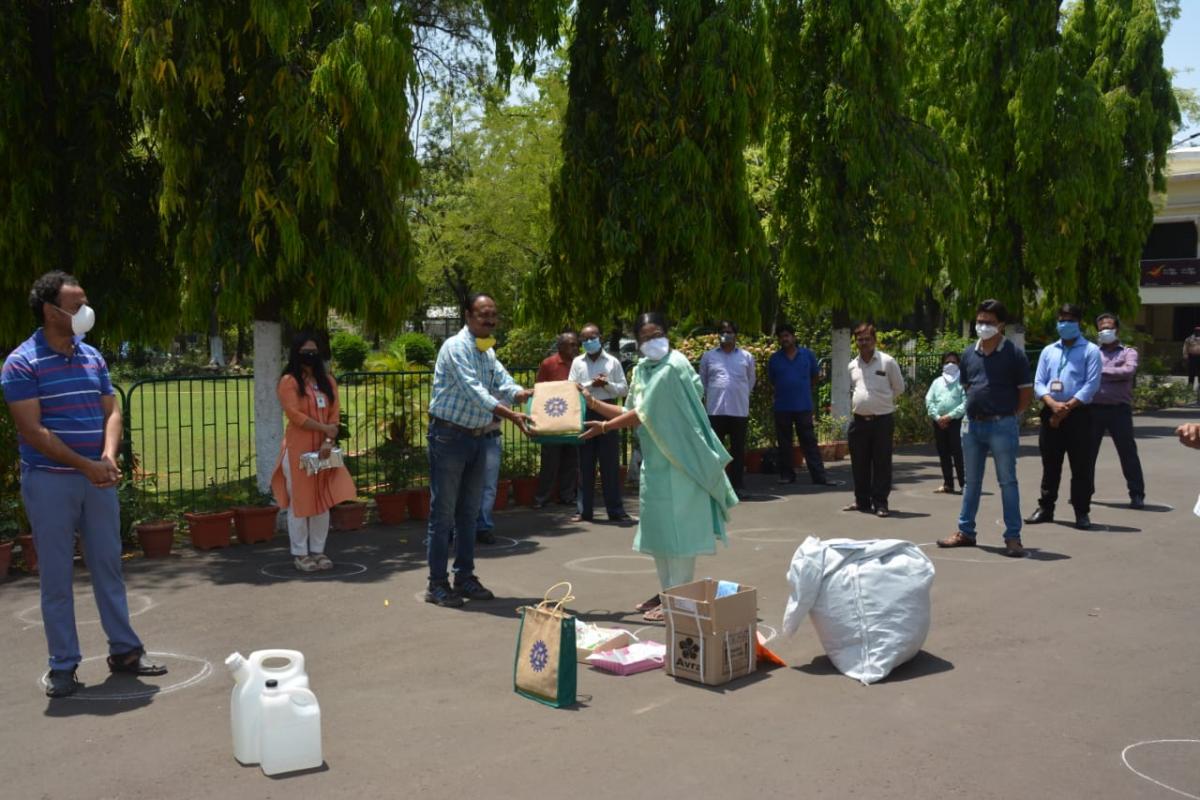How one Indian institute is responding to COVID-19
April 23, 2020
OWSD Vice President, Atya Kapley gives her perspective on the pandemic
Atya Kapley is Senior Principal Scientist in the Environmental Genomics Division of the National Environmental Engineering Research Institute (NEERI) in Nagpur, India and has been Vice President of OWSD for the Asia-Pacific Region since 2016.
"Our institute is now getting ready to be a detection center for COVID-19, and the different labs of CSIR are working on many aspects to deal with the pandemic."
The Indian government declared lockdown as soon as cases were detected in the country and hence, despite being very populous, these measures have hugely helped to contain the spread.
The downside of the lockdown is an economic crunch on daily wage workers. The government has set up shelter homes to provide these workers with basic necessities and food. They are helped by good samaritans from the public and NGOs.
The National Environmental Engineering Research Institute (NEERI) where I work is a part of the Council of Scientific and Industrial Research (CSIR), Ministry of Science and Technology, based in New Delhi. Staff and researchers at all CSIR labs (there are 38) are working from home. However, those who live on campus are still going to the office.
 The job of my research institute is to provide solutions for environmental problems in the country. Due to the lockdown, we are unable to go to the various sites across the country for any remediation. Once the lockdown period is over, we plan to monitor and suggest treatments for waste that may be carrying the virus. For now, we have presented some suggestions to the Additional Divisional Commissioner of our city on how to deal with wastewater from hospitals.
The job of my research institute is to provide solutions for environmental problems in the country. Due to the lockdown, we are unable to go to the various sites across the country for any remediation. Once the lockdown period is over, we plan to monitor and suggest treatments for waste that may be carrying the virus. For now, we have presented some suggestions to the Additional Divisional Commissioner of our city on how to deal with wastewater from hospitals.
Our institute is now getting ready to be a detection center for COVID-19 and the different labs of CSIR are working on many aspects to deal with the pandemic, including:
- developing a more cost-effective diagnostics/detection kit for COVID-19. This has been submitted for the requisite permissions for use and subsequent scale-up
- researching better filters to be used in masks with nano material
- mass production of sanitizers and masks for distribution to the police and health care personnel who are at the forefront of the response
- developing cell line and virus cultures to study their effects and undertaking genome-based studies to understand the functioning of COVID-19 and hence develop drugs or cures
- treatment of wastewater from hospitals (and other institutions) to halt the spread in the environment
- producing reverse transcriptase (RT) in large quantities. RT is an enzyme used to generate complementary DNA from an RNA template. Once transformed from RNA to DNA, the viral DNA can be integrated into the genome of the infected cells.
- developing devices to increase the scope of ventilators used in hospitals as well as transportable ventilators
- Research on plant-based cures
- Providing assistance to government-authorized detection centres by using CSIR facilities to open new research centres
 We are in the process of submitting publications on various aspects of the pandemic and the institute already has one paper accepted in the area of the genomics of the virus.
We are in the process of submitting publications on various aspects of the pandemic and the institute already has one paper accepted in the area of the genomics of the virus.
Photos: 1) Atya Kapley; 2 and 3) NEERI staff making masks and distributing to NGOs, while observing rules of distancing











































